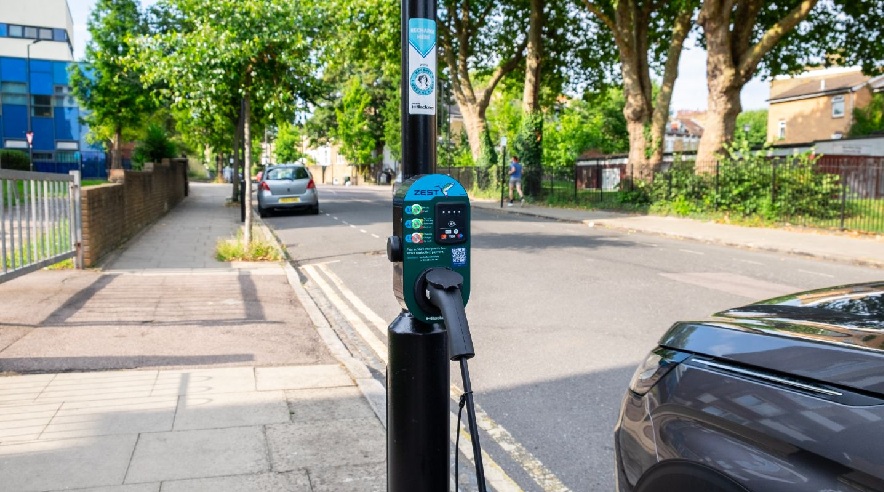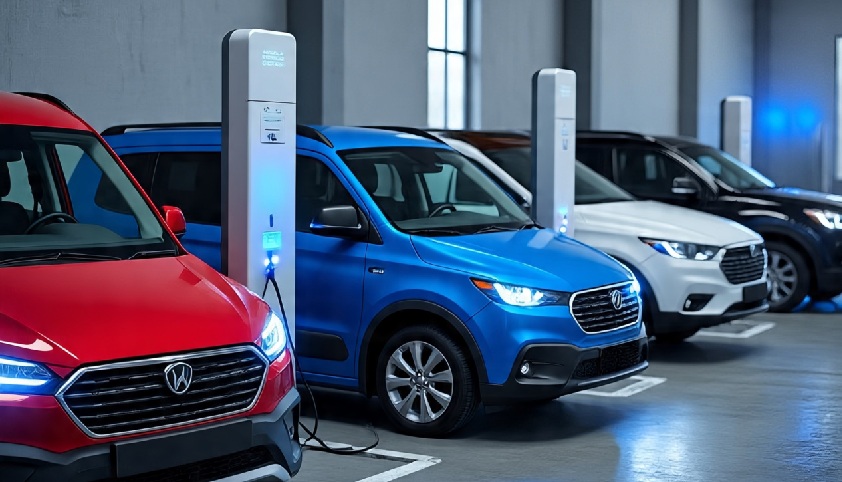Residents in Portsmouth are another step closer to more electric vehicle (EV) charging options, as Portsmouth City Council evaluates over 300 new locations for on-street chargepoints in residential areas.
There are over 1.3 million EVs in the UK already, accounting for over 4% of all vehicles on roads, and this figure is expected to rise rapidly.
With nearly one in five new cars sold being electric vehicles last year, Portsmouth needs to prepare for this rising demand and ensure the infrastructure is in place for people to charge their vehicles.
Working in collaboration with new chargepoint operator, Zest, the council has identified over 300 potential locations, all based on resident requests.
The proposed sites are spread across residential areas, ensuring communities all over the city can access simple, easy and reliable charging options.
If approved, the chargepoints will be installed on or near existing lampposts to draw power, with designated EV-only parking bays marked on the road.
They will be publicly accessible to everyone and installed on-street in residential areas, and the council expects the first of these to be installed and available for people to use in summer 2025.
To make sure chargers are available for EV drivers who need them, only plug-in vehicles are allowed to park in the bays and should be actively charging.
Drivers will be able to pay using contactless cards or use the Zest app to start charging and are encouraged to move their cars once charging is complete.
Residents near proposed locations for chargepoints will receive letters to let them know about the plans, and all sites will undergo a 21-day statutory public consultation as part of the Traffic Regulation Order (TRO) process.
This ensures everyone has the chance to share their support or raise objections about proposed locations.
If approved, this expansion will more than triple the number of on-street chargepoints in Portsmouth, making EV ownership more accessible, particularly for those without driveways or off-street parking.
All currently available chargepoints in the city will remain operational with their current suppliers for the time being, and the council is working with current operators and Zest to identify which chargepoint locations can be transferred to Zest and how soon they can take over operation.
Cllr Peter Candlish, Cabinet Member for Transport, saya : “By significantly expanding our charging network, we’re giving more residents the opportunity to choose electric vehicles, reducing emissions and improving air quality in the city.”
“This isn’t just about improving convenience for EV owners—it’s about making Portsmouth a city that embraces innovation, sustainability, and a cleaner, healthier future for everyone,” he adds.
Robin Heap, CEO at Zest, states: “Our EV infrastructure partnership will serve residents over many years at locations that have been carefully selected for maximum community benefit.”
This new charging infrastructure is an important part of the city’s strategy for reducing carbon emissions and improving air quality, ensuring Portsmouth provides more support for people to choose electric vehicles by electrifying the city’s transport network.
It also forms part of Portsmouth’s broader commitment to sustainable travel, which includes encouraging people to walk or cycle where possible, zero-emission buses alongside existing public transport options, rental e-scooters, e-bikes, and a car club.
READ MORE
-
Qwello France Secures Landmark Deal to Install Nearly 400 Charging Points
This win represents Qwello France’s largest public tender to date, bringing the company’s total number of contracted charge points in France to over 800.
-
UK Launches £1 Million Scheme to Support Charging Infrastructure at Depots
The scheme, which opened on 16 July, covers 75% of the costs of charging points and civil works. Who is eligible for the funding, and when does it close?
-
First Fastned Charging Hub on German Motorway Network Officially Opens
The site features state-of-the-art 400 kW charging stations. In the long term, the aim is to establish 4,000 charging points along Germany’s motorways, with 34 of them to be built and operated by Fastned.










